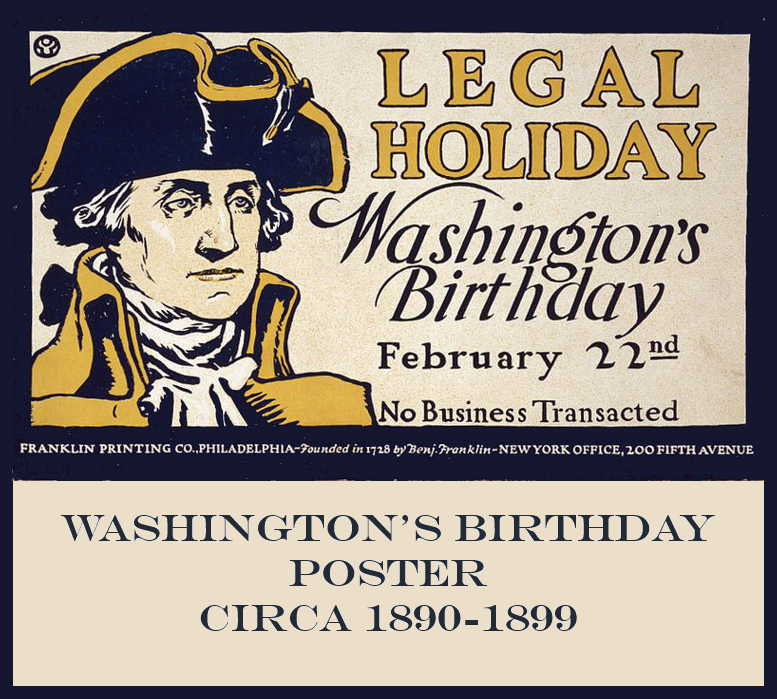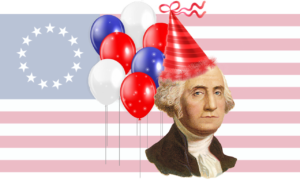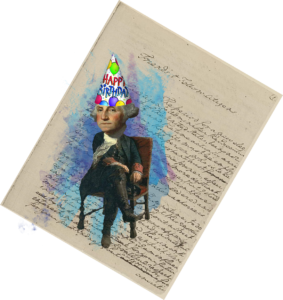It’s not often you hear someone discuss the “wisdom” of the members of Congress — certainly not in recent memory. As the two parties have been increasingly infiltrated by fringe politicians, common sense, let alone wisdom, seems to have evaporated like the morning dew when touched by the rising sun. However, back in 1968, Congress decided Americans needed a few more three-day weekends and, on 28 June, passed the Uniform Monday Holiday Act (the act was updated in 1971). As a result of this act, three federal holidays moved permanently to a Monday — Washington’s Birthday, Memorial Day, and Labor Day. That act also made Columbus Day a federal Monday holiday. Giving Americans a few more three-day weekends might have been smart; however, where Congress showed real wisdom, was formally keeping Washington’s Birthday as the name of the holiday. According to journalist Jeva Lange (@Jee_vuh), members of Congress did consider calling the holiday Presidents Day; however, “in the end it was decided that ‘not all Presidents are held in the same high esteem as the Father of our Country’ and the holiday was signed into law as ‘Washington’s Birthday,’ as it is still federally known.”[1]
Even though Congress decided to keep “Washington’s Birthday” as the holiday’s official name, marketers decided the moniker “Presidents Day” had more cachet. They believed this because they could use both Washington’s picture and Abraham Lincoln’s picture in advertisements. Since the two most iconic U.S. Presidents had birthdays so closely together, celebrating them in tandem seemed like a good idea. Lincoln was born on 12 February 1809. However, recent events demonstrated Congress’ wisdom in not changing the holiday’s name. They were correct, not all presidents deserve to be honored for their actions. Scandals have plagued more than a few of our Presidents. Even Washington had his faults. Like many politicians of his era, Washington was an enigma — a proponent of liberty and a slave owner. Nevertheless, most historians agree the greatness of his character outweighs the severity of his faults.
Some Americans, however, seem to forget that all Presidents are flawed human beings. As a result, many of their names are being stripped from public buildings. For example, in June of 2020, the Princeton University Board of Trustees voted to remove President Woodrow Wilson’s name from its school of public policy. They noted, “We have taken this extraordinary step because we believe that Wilson’s racist thinking and policies make him an inappropriate namesake for a school whose scholars, students, and alumni must be firmly committed to combating the scourge of racism in all its forms.”[2] Racism certainly shouldn’t be tolerated, and removing his name sends a strong message. History will record, however, that, in spite of his racism, Wilson also served the country during the trying times of the First World War, was the President of Princeton, and served as Governor of New Jersey.
In a more recent example, San Francisco-based journalist Gary Kamiya reports, “San Francisco has issued its latest grand moral decree, and bad ex-presidents would be quaking in their coffins — if they could stop laughing. On January 26, the San Francisco school board announced that dozens of public schools must be renamed. The figures that do not meet the board’s standards include Abraham Lincoln, George Washington, Thomas Jefferson, [and] Theodore Roosevelt.”[2] Looking back on America’s presidents with 21st century eyes makes it easy for us to see their flaws; however, it doesn’t help us understand the circumstances that molded their character or shaped their beliefs. Washington and Jefferson were slave holders (and Jefferson apparently fathered children with at least one of his slaves). Andrew Jackson not only owned slaves but, during his presidency, saw the enactment of the 1830 Indian Removal Act which removed Native Americans from their lands and initiated the Trail of Tears march during which dozens of men, women, and children died. Abraham Lincoln only managed to stay in office by ruthlessly using political patronage. Teddy Roosevelt was a domestic progressive but a bloody-minded foreign policy hawk. Warren Harding was a philanderer. Franklin Roosevelt, our greatest wartime President, agreed with the policy that sent Japanese Americans to internment camps at the beginning of the Second World War. And Richard Nixon resigned the Presidency in disgrace. Through all of the ups and downs and bumps in the road, America has managed to survive and progress. And you have to remember that “we the people” elected those flawed men.
In the Internet Age, when more information (and disinformation) is available to the public than at any time in history, it’s pretty easy to find the flaws in our politicians. Despite their flaws, Presidents for 242 years oversaw the peaceful transfer of power from one President to the next — thanks in large part to George Washington. So it’s fitting that we continue to honor him with a birthday celebration. Unfortunately, for Washington, his birthday is never actually celebrated on the day he was born.
When Washington was born (near Bridges Creek, Virginia, on an estate later called Wakefield), England was still using the Julian calendar and would continue using it for another twenty years. As a result, records show he was born on 11 February 1731. The staff at the National Archives notes, “In 1752, Britain and all its colonies adopted the Gregorian calendar which moved Washington’s birthday a year and 11 days to February 22, 1732.”[4] The staff continues, “Americans celebrated Washington’s Birthday long before Congress declared it a federal holiday. The centennial of his birth prompted festivities nationally and Congress established a Joint Committee to arrange for the occasion. At the recommendation of the Committee, chaired by Henry Clay of the Senate and Philemon Thomas of the House, Congress adjourned on February 22, 1832, out of respect for Washington’s memory and in commemoration of his birth.”
Washington’s Birthday was first recognized as a holiday in 1880 (but only in the District of Columbia). It was made an official federal holiday for the rest of the country in 1885. Although Washington’s Gregorian calendar birth date is 22 February, as noted above, the holiday honoring him was moved to the third Monday in February, which means the holiday never falls on his actual (Julian or Gregorian calendar) birthday. Since Washington himself was probably confused about when he should celebrate his birthday, it’s probably not a big deal that America doesn’t celebrate his birth on his actual birthday. So, President Washington, we wish you the happiest of birthdays — flaws and all.
Footnotes
[1] Jeva Lange, “The most grammatically-infuriating holiday of the year,” The Week, 18 February 2019.
[2] Jay Croft, “Princeton University to remove Woodrow Wilson’s name from public policy school and residential college,” CNN, 27 June 2020.
[3] Gary Kamiya, “The Holier-Than-Thou Crusade in San Francisco,” The Atlantic, 2 February 2021.
[4] Staff, “George Washington’s Birthday,” The National Archives.





